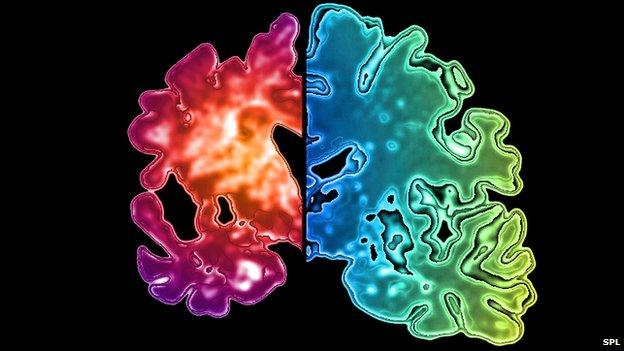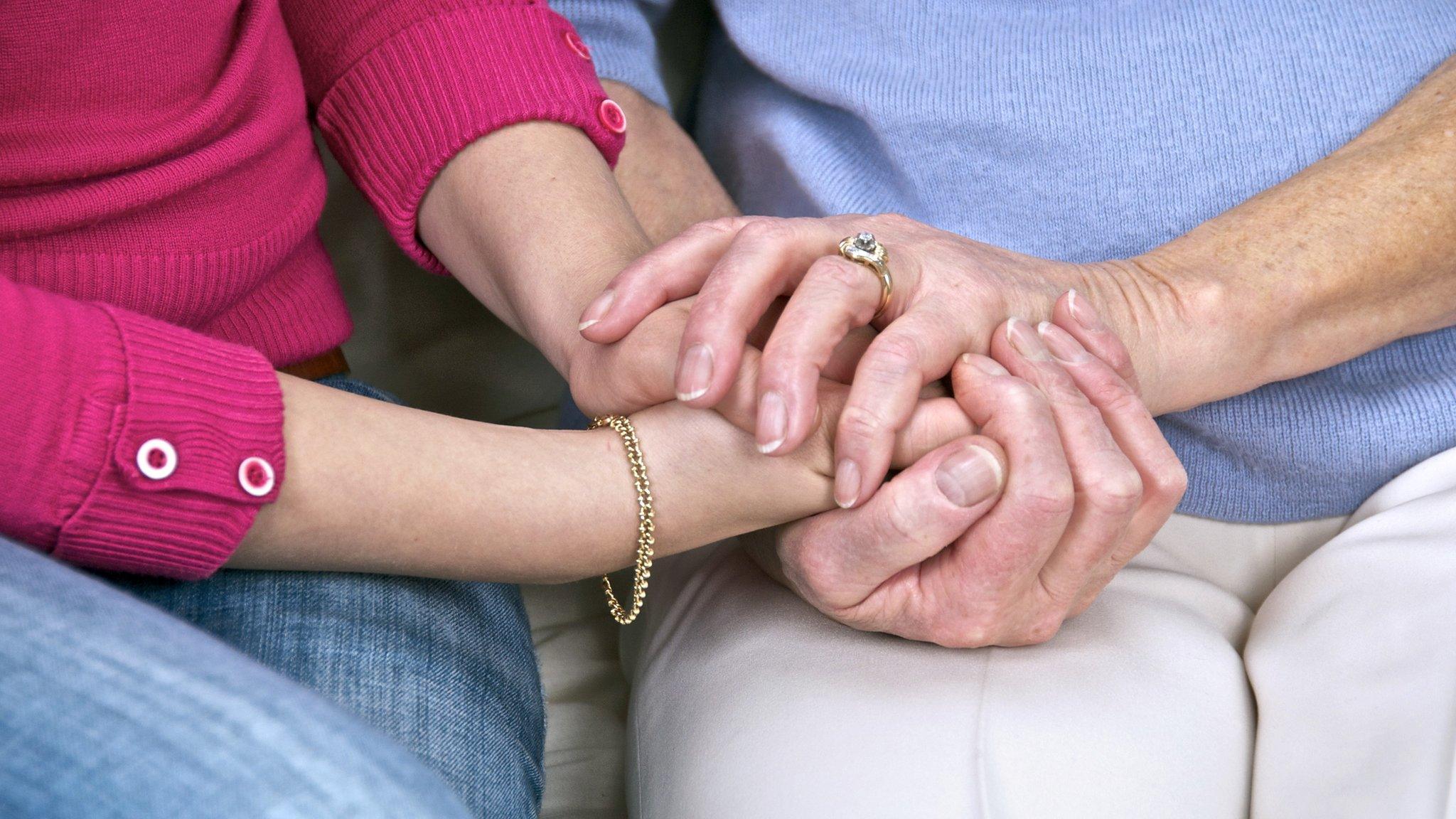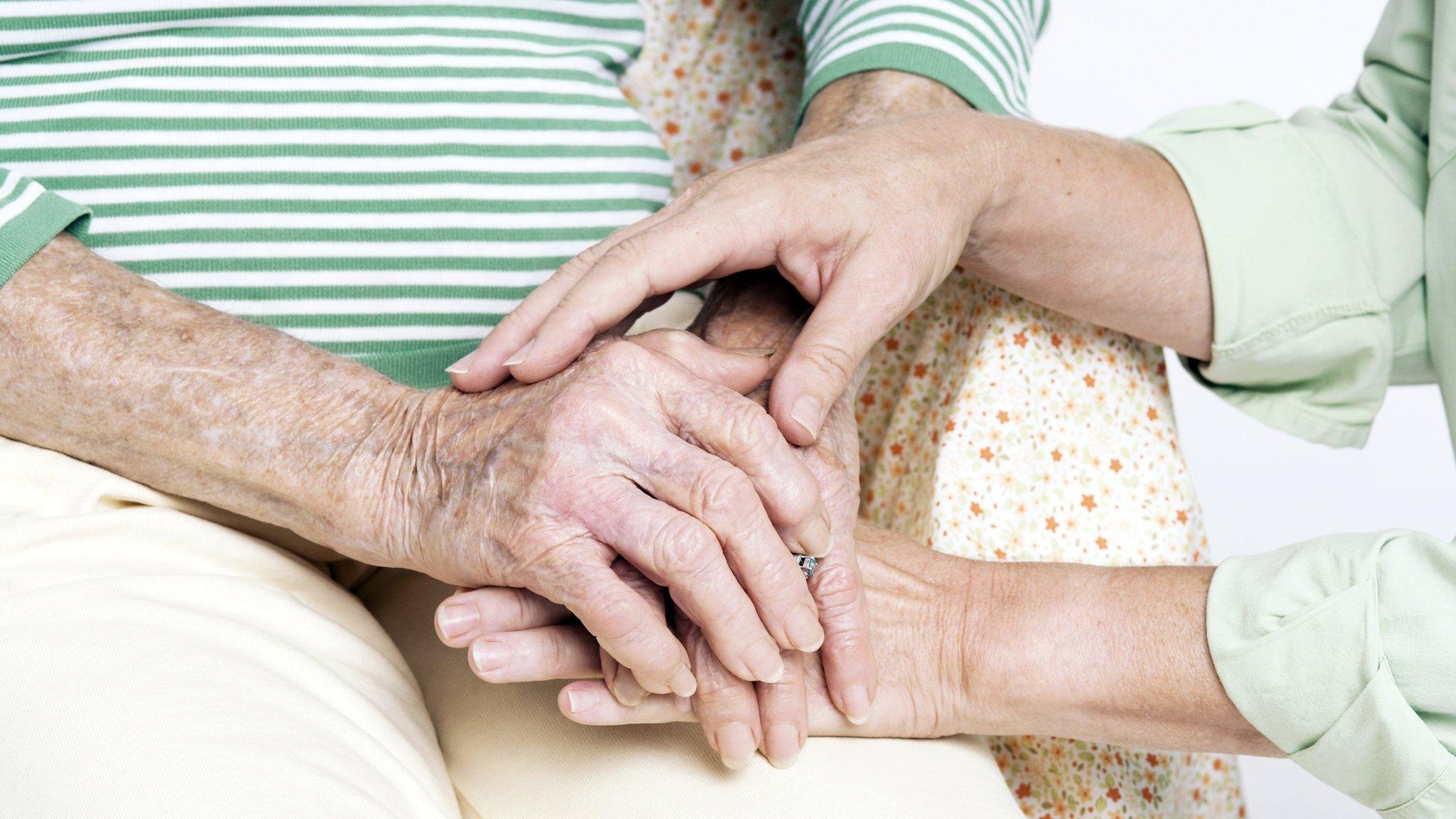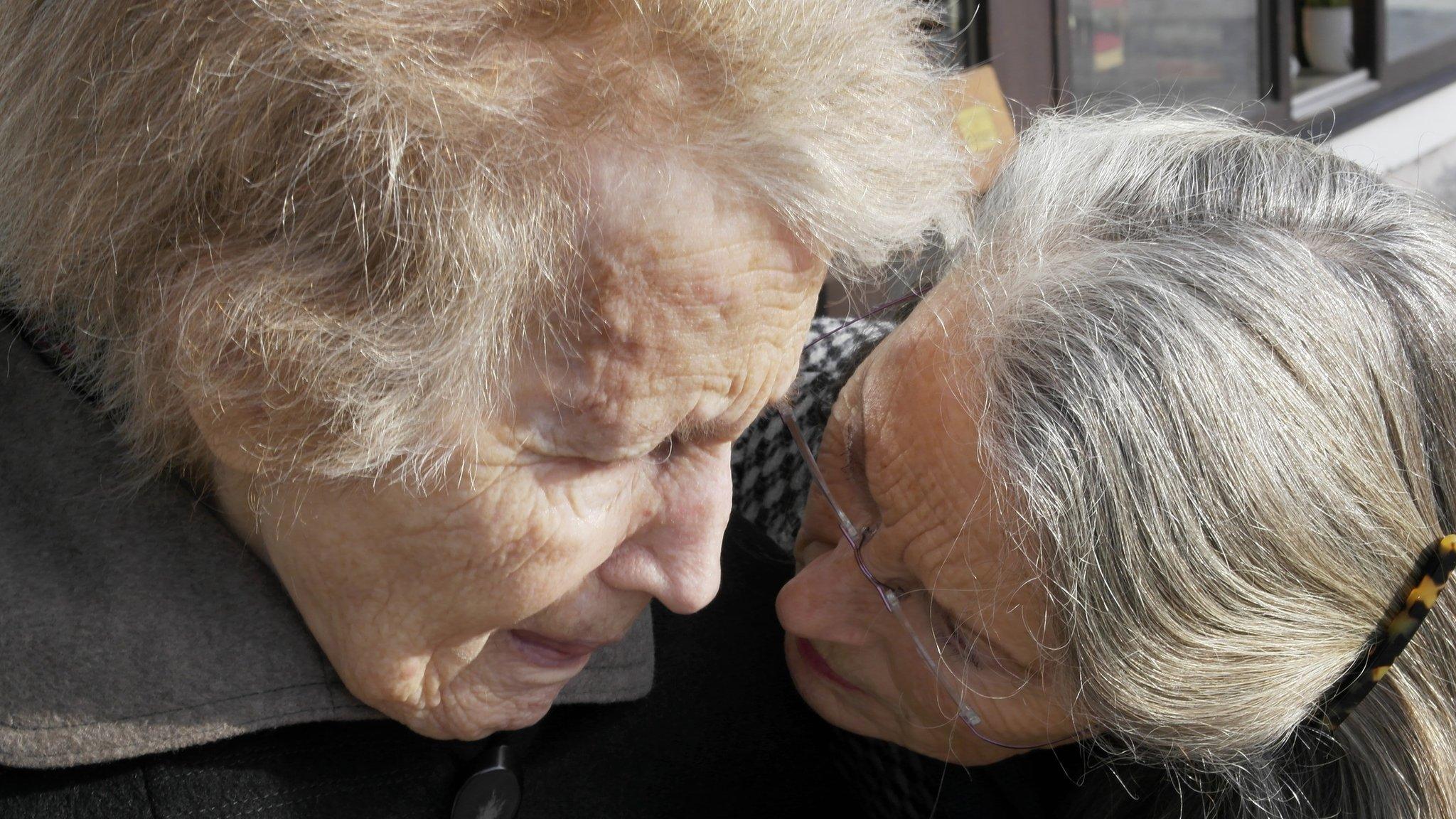Government pledges £300m on dementia research
- Published

Loss of tissue in a demented brain compared with a healthy one
More than £300m is to be spent by the government on research into dementia, the prime minister has announced.
David Cameron said an international dementia institute would be established in England over the next five years in a bid to make the UK a world leader for research and medical trials.
Some 1.3 million NHS workers will also receive additional training in how to care for people with dementia.
The PM said dementia was "one of the greatest challenges of our lifetime".
There are approximately 850,000 people living with dementia in the UK, with the number expected to hit a million within the next 10 years.
'Bold ambition'
The government said a separate multimillion-pound fund would be launched within weeks to help establish an international investment scheme to discover new drugs and treatments that could slow the onset of dementia, or even deliver a cure, by 2025.
It hopes the global fund will bring together investment from the private, public and philanthropic sectors under a single scheme to pay for research projects into the disease.
Faster assessments by GPs are also included in the prime minister's challenge on dementia 2020, external plans.
The prime minister first launched the dementia challenge for England in March 2012, building on the previous government's national dementia strategy, external.
Mr Cameron visited High Wycombe to meet people with dementia and dementia friends – people who are able to spot signs of the illness and help sufferers.
He said: "What today's announcement is about is a very simple but bold ambition, and that is to make the United Kingdom the best place on the planet in terms of researching into dementia, in terms of diagnosing people with dementia and then in terms of treating, helping and caring for them."

Signs of dementia
Struggling to remember recent events
Problems following conversations
Forgetting the names of friends or objects
Repeating yourself
Problems with thinking or reasoning
Confusion in familiar places

The NHS workers receiving extra training on how to provide best standards of care for people with dementia will range from surgeons to hospital porters, the government said.
There are also plans to give three million more "dementia friends" training in how to support those with the condition.
Other pledges include having the majority of people in England living in "dementia-friendly communities" in five years' time by making shops, transport and other public places more accessible to people with the condition.
Labour's shadow health secretary Andy Burnham welcomed the announcement but said more needed to be done to support dementia sufferers now.
He said: "Hundreds of thousands of vulnerable older people have lost social care support since David Cameron entered Downing Street. Social care in England is close to collapse but this government is in denial about it."
Professor Simon Lovestone, from Oxford University, said recent trials for new drugs had failed.
"We now need to do better clinical trials, we need to do them earlier in the disease process, and for that we need tests for early diagnosis and we need better drugs," he said.
"And I think that the announcement that's been made today, together with the investment that's already been made in the UK, puts the UK at the leading front of a truly international effort that will actually deliver on this."
Professor Nigel Hooper, dementia researcher at the University of Manchester, told BBC Breakfast £300m was "a great investment" but said cancer research received five times as much funding globally as dementia.
Initial dementia assessments will take place in an average of six weeks and will be followed by support such as informing sufferers of local services that can help them, as well as advice for their carers.
- Published21 February 2015

- Published8 November 2012

- Published15 January 2013

- Published11 December 2013
